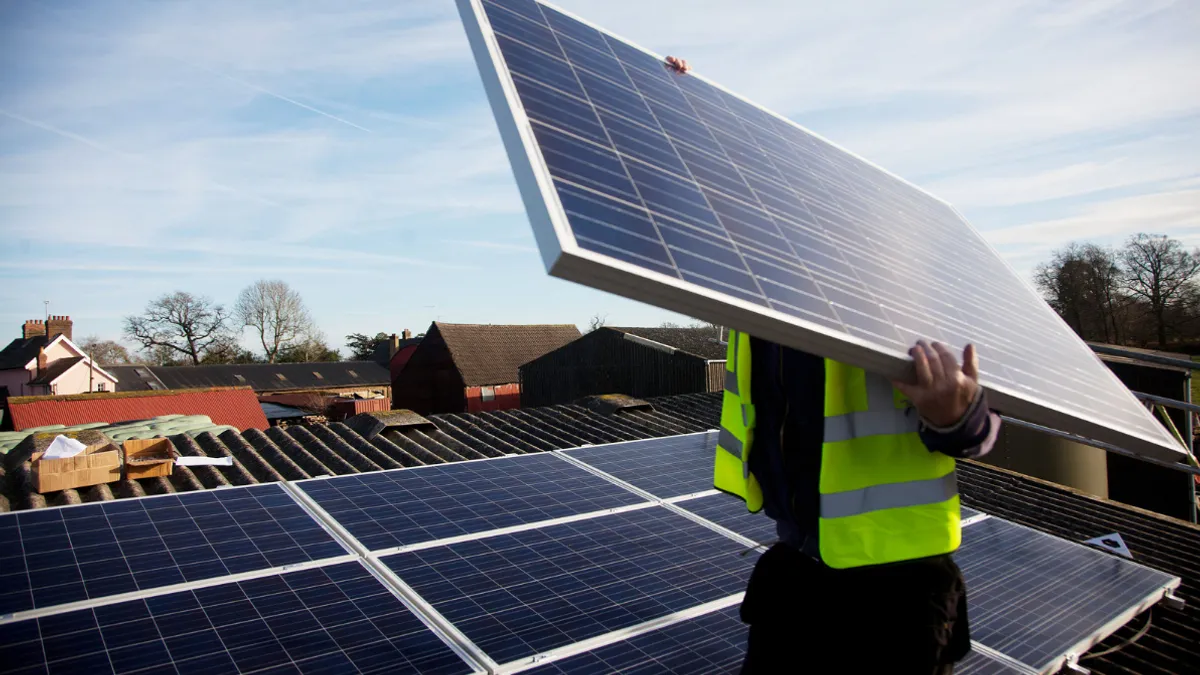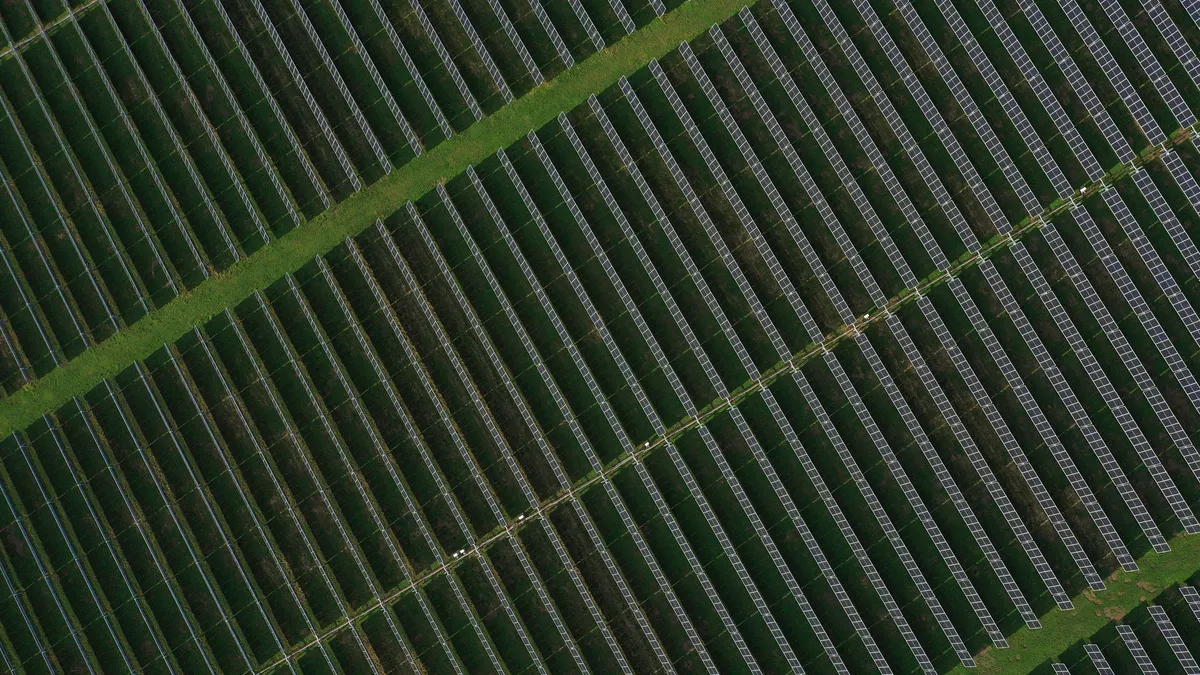Dive Brief:
- Opposition is growing against a proposal that would effectively allow any customer-sited generation to be subject to federal regulation, and it's unclear who outside the petitioner will support the proposal.
- States have decried the move as an attack on state autonomy to regulate behind-the-meter generation such as rooftop solar and storage, one that represents a "threat" to state policies they have crafted. "We have project developers with hundreds of hours coming up with innovative things that address some of these issues, and [NERA wants] a one-size-fits-all federalization. That's what's at stake and I obviously don't like that," Arkansas Public Service Commission Chair Ted Thomas said Wednesday.
- Thomas, who spoke on the issue during an Advanced Energy Economy webinar, is leading a volunteer working group under the National Association of Regulatory Utilities Commissioners (NARUC) to prepare comments on the petition, which was first filed with the Federal Energy Regulatory Commission by the New England Ratepayers Association (NERA) in April.
-
Dive Insight:
States have been particularly vocal in their opposition to the NERA petition, joined by Democratic federal lawmakers, clean energy advocates and others. Power trade associations, including Edison Electric Institute, Electric Power Supply Association and American Public Power Association have stayed largely quiet thus far on how they'll weigh in.
"APPA is still developing its response to the petition and receiving input from members," John McCaffrey, senior regulatory counsel for APPA said Wednesday during the webinar, though public power utilities across the country do have net metering programs that would be "jeopardized" by the NERA filing.
"At a very high level, when it comes to distributed energy resources, generally APPA has consistently supported policies that allow decisions to be made at the local level," he said, adding that "granting the petition would be essentially the opposite of that position."
EPSA said it's also still developing its response to the petition. EEI in an email said the group will not comment on the petition.
"While EEI has long taken issue with retail net energy metering as both a regressive and poor public policy tool that unfairly shifts electricity costs on to the most vulnerable customers, we will not be filing substantive comments at this time," spokesperson Brian Reil said. "EEI has filed a motion to intervene to reserve our rights to participate when the Commission rules on the legal issues at question in the petition."
NERA in its petition asked FERC to "declare that there is exclusive federal jurisdiction over wholesale energy sales from generation sources located on the customer side of the retail meter."
Questions of who is funding the group have been raised by several stakeholders, and were also raised in a letter sent by 24 Congress members last week. The group has not responded to any requests for comment on its funders or on the mounting opposition to its proposal.
Distributed energy compensation policies exists in some form across 45 states, with 38 having some form of net energy metering. State regulators worry that homogenous regulation could harm their efforts to integrate specific state policies with utility needs.
Several issues with net metering policies have been raised by larger power providers.
Some utilities have raised the issue of cost-shifting, for example, saying that solar net metering customers who are compensated by power providers for the amount of solar they supply to the grid through their rooftop panels are costing non-solar customers money, one issue raised by NERA in its petition.
Arkansas regulators on Monday released an over 600 page order that Chair Thomas said he thinks could solve that issue, among others, while simultaneously bringing more solar and storage onto the grid.
The order keeps a high compensation rate for solar facilities under 1 MW, while larger, industrial customers pay the demand charge, or the increased rate paid for using electricity during a high peak period. The rules will continue to pay net metering customers on a 1-to-1 rate, and then uses storage as an incentive "to mitigate the cost shift, and in fact, reduce it to zero," said Thomas.
Arkansas generates less than 1% of its electricity from solar, though prices in the state have dropped 78% in the past five years, according to the Solar Energy Industries Association. Last year, the state opened up third party solar, and now has 100 MW to 250 MW of third party development in the pipeline, Thomas said.
"The NERA petition is a threat to this … What's at stake is risk to these policies," said Thomas. "When you look at the petition that says, ‘Well, you're not paying attention to the cost shift, and you're not doing this,' ... It's irritating."
The vice chair of the Georgia PSC has also spoken out against the proposed policy, which he told Utility Dive in an email could have a "chilling effect" on rooftop solar policy across the country.
"The harm would be minute in Georgia right now because we only have about 2,000 customers net metering," said Tim Echols. But "it would stall rooftop growth for the future."
Comments on the NERA petition are due June 15. NARUC had initially asked for a 90-day extension and was given 30. Former FERC Commissioner Suedeen Kelly will join NARUC as outside counsel in crafting comments, according to Thomas.
This post has been updated with comment from EEI.






















